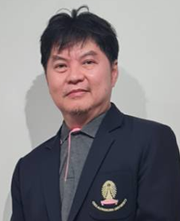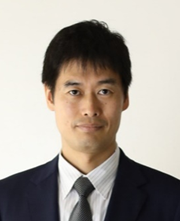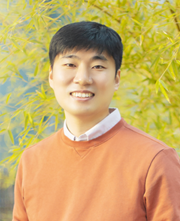ITC-CSCC 2023
June 25(Sun) – 28(Wed) / Grand Hyatt Jeju, Republic of Korea
Program
-
Submission of Paper
April 14, 2023April 21, 2023 -
Notification of Acceptance
May 8, 2023 -
Submission of Final Paper
May 22, 2023
TODAY 2024. 05. 03
ITC-CSCC 2023
D-0
Tutorial Speakers
Developing an Immersive Virtual University Campus: A Practical Case Study of Intaniaverse.com
Presenter

Assoc. Prof. Lunchakorn Wuttisittikulkij
- Chulalongkorn University, Thailand
Abstract
Metaverse is a term used to describe a virtual world where humans live, learn, work, and interact with each other through digital avatars. Many envision the metaverse as the next evolution of the Internet: the future of social interaction, entertainment and commerce where humans experience and see life in ways they could not in the physical world. Recent advances in virtual reality, augmented reality and mixed reality technology are among key technology that provide truly immersive experiences in 3D virtual space. Despite its potential, the metaverse is still at early stage and in the foreseeable future no single platform will dominate every sectors. This tutorial presents how a virtual university campus can be built by academic sector and what benefits can the metaverse bring to academic world. An example of a virtual university campus, called intaniaverse.com, will be used as a practical study case. This tutorial will be useful for those who seek to construct a metaverse by themselves.
Dr. Lunchakorn Wuttisittikulkij received a Bachelor’s degree in Electrical Engineering from Chulalongkorn University, Thailand, a Master of Science degree in Telecommunications and Information System, and a Ph.D in Electronic System Engineering both from University of Essex. He joined the department of Electrical Engineering, Chulalongkorn University in 1997. His research interests include wireless communications and networks, digital twins, smart factory, virtual reality and metaverse.
Research on Ising Machines for Combinatorial Optimization: Chips to Systems
Presenter

Dr. Kazuo ONO
- Hitachi Ltd., Research and development group
Abstract
Today, in order to realize comfortable life and economic development, optimization processing using a large amount of complex data is promising. Optimization processing with large amount of data using conventional computing technologies require a large amount of processing time. An annealing machine, a new-paradigm computing technology inspired by a quantum computer, was proposed to accelerate the optimization processing. Now, many implementations of annealing machines are developed and commercialized in various fields.
In this talk, the necessity of annealing machines is discussed for an actual social implementation and examples of real applications are also introduced. Then CMOS annealing, which is one implementation of annealing machine using CMOS process, is introduced. The annealing machine is newly developed technology and there are many challenges to spread the technology. The challenges are also explained.
Kazuo Ono received the D.E. degrees from the University of Tokyo, Tokyo, Japan, in 2006. In 2006, he joined Hitachi Ltd. Central Research Laboratory, Tokyo, where he has been engaged in the research and development of emerging memory technology. He developed spin-transfer torque memory and its applications in 2009, novel DNA sequencing technology in 2011, MEMS inertial sensor for automotive application in 2016, a FET type hydrogen sensor for harsh environment in 2018, retrofit wireless sensor system for analog gauge reading and abnormal sound detection for monitoring of industorial facilities in 2020. Since 2021, he has been leading research and development of CMOS annealing technology to solve large scale combinatorial optimization problems for social innovation. He was a visiting industrial fellow at Mechanical Engineering in University of California Berkeley under Professor Albert Pisano from 2012 to 2013. He won the young researcher award of the SSDM 2009.
Machine Learning for Autonomous Driving at Scale
Presenter

Jinkyu Kim
- Korea University
Abstract
Self-driving vehicle perception and control have made dramatic progress in the last several years, and many auto vendors have pledged large-scale commercialization in a 2-3 year time frame. These controllers use a variety of approaches but recent successes suggest that neural networks will be widely used in self-driving vehicles. Classical AI systems involve carefully-crafted features and representations, while one of the new powers of deep learning methods is the ability to learn very effective latent representations from data. There have been a variety of approaches, which depend on the modular perception-prediction-planning-control pipeline, where each module can be built using deep learning methods. In this talk, I will introduce some of Waymo Research's recent work on deep learning for autonomous driving at scale and the variety of challenges towards fully self-driving ride on public roads.
Jinkyu Kim is an assistant professor of the Department of Computer Science and Engineering at Korea University. He was a research scientist at Waymo (formerly the Google self-driving car project), conducting cutting edge research to develop new solutions related to autonomous driving, in particular, to solve outstanding challenges in planning and behavior prediction. He received his Ph.D. in Computer Science from UC Berkeley (advisor: Prof. John Canny) and was part of Berkeley AI Research and Berkeley DeepDrive. He researched to build explainable and advisable models that can explain their rationale, characterize their strengths and weaknesses, and convey an understanding of how they will behave in the future. He received his B.S. and M.S. in Electrical Engineering from Korea University.